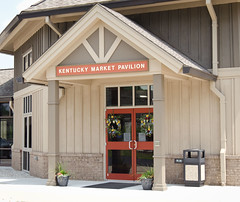Ways In Which Agricultural Mortgages Are Different
In many ways agricultural mortgages are very similar to other kinds of mortgages, but there are also some key differences. Understanding this is important if you are to find the right agricultural or rural mortgage for your business.
Unlike most mortgages it is possible to take out an agricultural mortgage that can be passed on to the next generation. This is an important difference to a standard residential or commercial mortgage. Many agricultural mortgages are taken out to finance farms, which are typically passed down through the generations. Being able to pass on the mortgage to the next generation is a way of making sure that the farm does not have to be sold on the death of the original mortgage holder. This means that the next generation can inherit the farm intact and carry on farming if they want to or sell off the business and pay off the mortgage.
Agricultural mortgages are generally more flexible than residential or most commercial mortgages. F arming is by its very nature a very volatile business, overheads fluctuate wildly and the price farmers get for their crops or animals also fluctuate wildly. This means that an agricultural business may not be able to make money one season, but the next can make a fantastic profit. The providers of agricultural or rural mortgages have come to recognise this fact and as a consequence understand the need to offer more flexible repayment terms than other mortgages.
Most mortgages have to be paid on a monthly basis, but with agricultural mortgages you can arrange to make repayments, bi-annually, quarterly or even yearly. This is important for the cash flow of a farm who harvests only twice a year. Effectively that business is only cash rich when paid for those two harvests, the rest of the year they become gradually cash poor as they sow, fertilise, water and harvest their crops. Being able to pay the mortgage only when they are cash rich really helps the farm.
Becau se farming is such a volatile business, generally speaking, you cannot get a 100% Agricultural mortgage in the same way you can for a residential mortgage. Most agricultural mortgage providers will easily provide a 75% mortgage, but if you want a higher mortgage than that you will have to negotiate.
Agricultural and rural mortgage lenders are used to lending to many different kinds of rural business. These businesses may be owned by a sing private individual or a group of private individuals, be limited companies or may be owned by a trust. Agricultural mortgage lenders are used to this and are experienced in putting together loans for all of these kinds of businesses owners. Standard mortgage lenders are sometime reluctant to lend to a trust or a group of individuals.
If you have a rural business, especially a farm, then speaking to an agricultural or rural mortgage broker will greatly benefit the financial health of your business.
For the best advice on a agricultural mortgages, visit us today where you can also find guidance on Land mortgages and loans
Article Source: http://EzineArticles.com/?expert=Jools_Marsh
